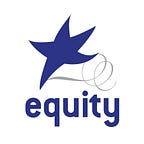CLOSE ENCOUNTERS OF THE SAFE AND CONSENSUAL KIND
Intimacy coordinators have become a welcome addition on many sets, helping to make workplaces safer and less stressful. Ruth Fallon tells how she came to train for the role and what she has learnt along the way.
There are many practitioners who will say that they didn’t choose to train in intimacy − rather, intimacy training found them. I would put myself in this category. Over the course of many years and many jobs, I found myself on the path to intimacy coordination. Before I knew it, I was being asked to choreograph bodies and minds towards a safer and more consensual practice.
Like so many that came before me, the concept of bringing in specialists to handle this type of work was born out of too much trauma, sadness and anger. This is a tough spot to introduce a new way of working in our industry! The performing arts and their processes have been handed down by our talented forebears, with all the pros and cons. Now we are asking ourselves, can we do this better?
I graduated from acting school like so many, as keen as mustard, with little idea of what I was doing. Around the same time, I began martial arts training, eventually going on to gain multiple instructorships with my teacher Sifu Nino Pilla, and his own teachers Guro Dan Inosanto and Ajarn Chai Sirisute. I later completed my stunt action person grading. I taught a lot. I performed. I choreographed for action sequences in theatre. I trained actors for action, and trained action actors for acting. I started getting called onto bigger projects.
We began to hear numerous stories from around the globe of intimacy choreographers being employed, and as a natural progression I was asked if this was something I could do. The feedback was clear: less stress and trauma in our creative environments made for a better work ethos and a superior product. Less stress on the nervous system created more resilient, open-hearted performers, as well as a safer and more informed environment for the crew. A triple win.
Last year, I was one 13 fortunate Equity members who received a scholarship to study with Intimacy Directors and Coordinators (IDC), the leading organisation for intimacy professionals in the entertainment industries. IDC provided us with three levels of specialised online training, based on their current program, with Alicia Rodis, intimacy coordinator for HBO studios, who pioneered the role in the United States.
Training with Alicia and her guest teachers was a breath of fresh air, as was meeting my fantastic cohort (thank you, Equity Foundation!). Through working with IDC, I was able to take the skills I’ve gained in martial arts around consent and safety and pivot them towards intimate content specifically. I learnt how to communicate these things clearly and provide secure stepping-stones for people to move forward in their work, ultimately helping the production as a whole unit. Is it a perfect process? Well no, there is no such thing. It’s still a work in progress. But the ‘work’ and ‘progress’ parts are evolving at a rapid pace. We’re communicating. We are figuring it out. And when one learns, we all do.
The wisdom and skills brought by the whole group of students training with IDC blew me away. It helped me connect with colleagues I could recommend all over the world, as well as starting the process of collaborating in a big way here in Australia. It made me hopeful and excited to see how many practitioners are moving towards consent-based work now that we have seen the benefit as a whole picture.
I urge you to look these people up if your organisation needs more information about workshops and consulting. They are at the forefront of this change. Call them. Hire them. Pay them.
It’s going to take time. Sometimes change can feel like two steps back, one step forward process. There will probably always be people who think this job is just fluffing pillows and egos. And bringing mints. That’s okay for now.
But ultimately, it is about learning and moving forward, now that we know there are things we can do better. I feel fortunate that most of my experiences in this arena have been met with a curiosity to find out how we can make working environments safer. The studies are clear − when people feel physically and psychologically safe, their work can only improve. Connection is better. Teamwork becomes easier. This isn’t just an opinion anymore − it’s a fact. Bring it on, I say.
Ruth Fallon is an actor, martial artist and intimacy coordinator based on Kaurna land.
